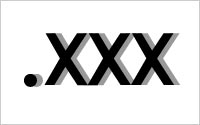Judge Allows Antitrust Lawsuit Against ICANN
- by Wendy Davis @wendyndavis, August 17, 2012
 In a closely watched case, a federal judge has ruled that the Internet Corporation for Assigned Names and Numbers can be sued for alleged antitrust violations stemming from the new
".xxx" domain name.
In a closely watched case, a federal judge has ruled that the Internet Corporation for Assigned Names and Numbers can be sued for alleged antitrust violations stemming from the new
".xxx" domain name.
The antitrust lawsuit against ICANN -- filed last year by Luxembourg-based porn company Manwin Licensing International -- drew the attention of the Association of National Advertisers. It says the dispute raises some of the same issues about new domain names that trouble marketers.
Manwin filed suit against ICANN last November, shortly before the rollout of a new ".xxx" top-level domain. ICANN said that companies or individuals could pay the registry ICM -- tapped to manage the .xxx domain -- to prevent their names from being registered with an .xxx at the end, but that doing so would cost $150.
Manwin argued in court papers that companies or individuals who wanted to prevent their names being used by others in a .xxx domain should not have to pay a fee of $150. The company said the fee was artificially high and reflected price gouging, monopolistic conduct and other anti-competitive practices.
ICANN, a nonprofit, asked for the lawsuit to be dismissed on the grounds that its activities are not commercial. ICANN argued that its decision to approve the .xxx domain, and sign a deal with ICM, reflects "the very heart of ICANN’s charitable, noncommercial purpose in overseeing and coordinating the [domain name system]."
ICANN added that antitrust laws "were intended to regulate commercial activity, not noncommercial conduct undertaken by a nonprofit organization."
In a decision issued this week, U.S. District Court Judge Philip Gutierrez in the Central District of California rejected ICANN's position. He wrote that ICANN's argument about its charitable purpose is "irrelevant to an analysis of whether ICANN's activities are commercial."
At the time the case was filed, ANA said the dispute was “one more example of many potential problems that would be multiplied by hundreds” that could stem from ICANN's plan to allow companies to purchase brand names and other words as top-level domains.
A top-level domain is the string of letters to the right of the last dot in the URL. Earlier this year, ICANN accepted applications for new top-level domains. The group received around 2,000 applications, which are still under consideration.


